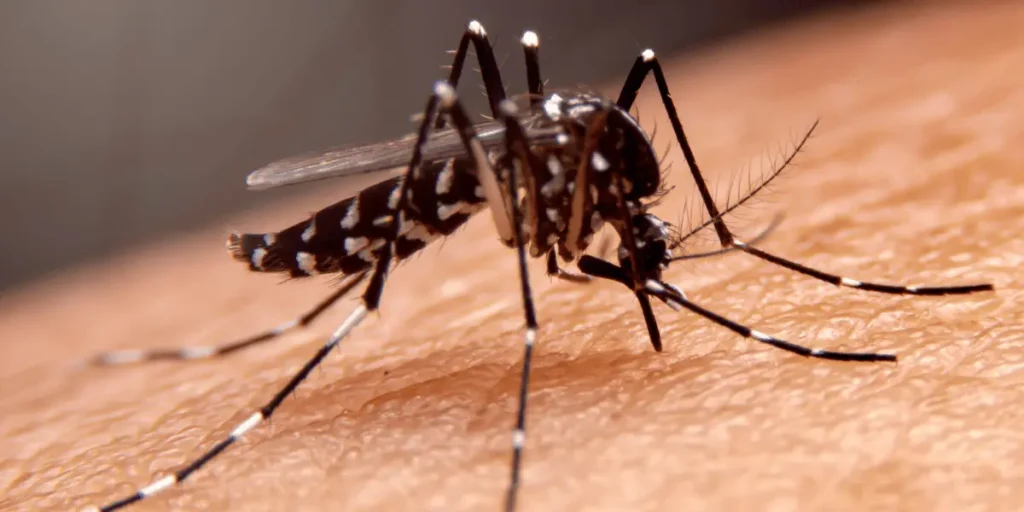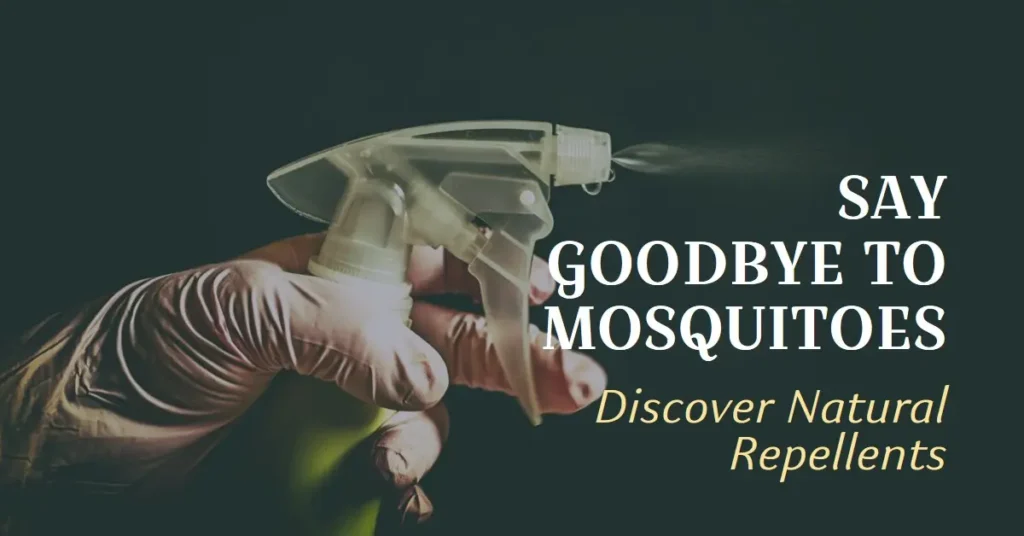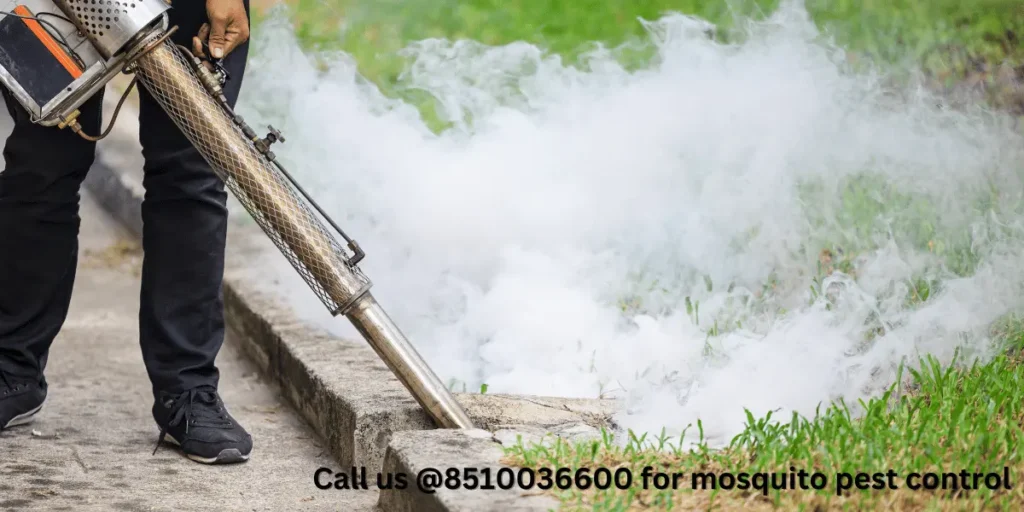
How To Keep A Mosquito Away?
Mosquitoes are those small but scary pests that can turn a pleasant outdoor experience into a nightmare and diseases. But don’t be afraid! With the right strategies, you can keep these bloodsuckers at bay and enjoy your time outside without any worries. In this guide, we will discuss a variety of techniques, from traditional methods to cutting-edge solutions, to help you learn how to effectively keep mosquitoes away.
Understanding Mosquito Behavior

Understanding your enemy is the first step in any battle. Mosquitoes are attracted to sources of carbon dioxide, body heat, and certain odors emitted by humans. Female mosquitoes in particular need blood to develop their eggs, causing them to constantly search for food.
1. The Science Behind Mosquito Attraction
Delve into the fascinating world of mosquito biology and behavior to understand what draws these pesky insects to humans.
Carbon Dioxide Detection

Mosquitoes have highly sensitive receptors that detect carbon dioxide (CO2) from up to 100 feet away. Humans and other animals exhale CO2 as part of the respiratory process, making them prime targets for mosquitoes on the hunt for a blood meal. The higher the concentration of CO2, the more attractive the target appears to mosquitoes.
Body Heat and Thermal Sensitivity
In addition to CO2, mosquitoes are drawn to the heat emitted by warm-blooded animals, including humans. Their heat-seeking abilities are honed through specialized organs known as thermoreceptors, which detect infrared radiation. By homing in on sources of warmth, mosquitoes can pinpoint potential hosts with remarkable accuracy.
Chemical Odorants
Humans produce a variety of chemical compounds through their skin and sweat glands, some of which act as potent attractants for mosquitoes. These chemical odors, including lactic acid, uric acid, and ammonia, serve as cues for mosquitoes searching for a blood meal. Certain individuals may produce higher concentrations of these odors, making them more appealing targets for mosquitoes.
Host-Specific Preferences
Not all mosquitoes exhibit the same preferences when it comes to choosing a host. Different species of mosquitoes are attracted to different cues, with some showing a preference for humans while others prefer animals such as birds or cattle. Factors such as species-specific sensory adaptations and ecological niche play a role in determining host preferences.
Evolutionary Adaptations
The ability of mosquitoes to detect and home in on their hosts is the result of millions of years of evolution. These adaptive traits have allowed mosquitoes to exploit a wide range of habitats and hosts, making them highly successful vectors of disease transmission. Understanding the evolutionary basis of mosquito attraction can provide insights into effective strategies for control and prevention.
By gaining a deeper understanding of the factors that contribute to mosquito attraction, we can develop more targeted and effective methods for mosquito control. From minimizing CO2 emissions to using personal repellents, there are various strategies available to reduce the risk of mosquito bites and prevent the spread of mosquito-borne diseases.
You Can Also Read: Which is the Best Termite Control Chemical in India?
2. Natural Mosquito Repellents

Harness the power of nature to repel mosquitoes without harmful chemicals.
- Essential oils
Like tea tree oil, cedar oil, peppermint, lavender, eucalyptus, citronella, and lemongrass. It is best to apply these oils topically rather than internally.
- Oil of lemon eucalyptus
The oil from this plant smells good and provides up to two hours of protection. At the proper concentration, it works just as well as DEET and picaridin.
- Peppermint
Because menthol provides a strong smell that repels mosquitoes, peppermint has a peppermint scent.
- Citronella oil
This all-natural product like citronella candles and essential oils is made from the leaves and stems of various lemongrass species. Its strong odor masks human odor which attracts mosquitoes and repelling mosquitoes naturally.
- Catnip
Nepetalactone, an organic substance found in this plant, has insect-repelling properties.
- Lavender
Mosquitoes are repulsed by the chemicals pinene and linalool found in this plant. For defense against mosquitoes, you can apply the plant directly to your skin.
- Cymbopogon nardus
The essential oils in this grass are capable of keeping away wasps, mosquitoes, and no see-um.
- Basil
Basil leaves repel mosquitoes with their strong scent. It is thought that the most potent varieties are lemon and cinnamon basil.
3. Mosquito-Proof Your Home

Transform your living space into a mosquito-free sanctuary with these simple yet effective strategies.
- Install Screens
Install insect screens on chimneys, vents, doors, and windows. Use silicone sealant or caulk to plug any gaps or cracks in the exterior of your house.
- Remove standing water
Remove any standing water from your premises, including from tires, buckets, toys, and abandoned swimming pools. Maintain clean gutters and drains, and repair any leaky taps.
- Use traps
Utilizing a funnel, sugar and yeast mixture, and a two-liter soda bottle, construct a mosquito trap. Mosquito traps imitate the aromas and cues—such as heat, light, carbon dioxide, and fragrances—that female mosquitoes depend on for finding blood.
- Use treated mosquito nets
At night, use treated mosquito netting to reduce your chance of getting bit.
- Trim grass and bushes
To prevent mosquitoes from resting there during the day, cut and clean the grass and plants.
- Use plants
Plants that repel mosquitoes, such mint, catnip, lemongrass, tulsi, and marigolds, should be grown in your yard. Another option is to place cloves and lemon slices in your home.
- Use repellents
Use insect repellents with DEET or picaridin on exposed skin, and use insect surface sprays both inside and outside your house. Additionally, you may use candles or coils that repel mosquitoes, or you can burn scented candles that have aromas like citronella, lavender, rosemary, peppermint, basil, and lemon balm.
You Can Also Read: Types of Termites Species Found In India
4. Innovative Mosquito Control Methods

When traditional methods fall short, innovative solutions step in to fill the gap. Explore modern technologies and cutting-edge techniques designed to combat mosquitoes effectively.
Mosquito Traps

Traditional methods of mosquito control often involve spraying insecticides or using repellents. However, mosquito traps offer a more targeted approach by luring mosquitoes into a device where they are captured or killed.
Types of Mosquito Traps:
- CO2-Based Traps: These traps mimic human breath by emitting carbon dioxide, a primary attractant for mosquitoes. Once lured in, mosquitoes are trapped and unable to escape.
- Light-Based Traps: Utilizing UV light, these traps attract mosquitoes and other flying insects. Once drawn in, they are either trapped in a container or subjected to a lethal mechanism.
- Heat-Based Traps: These traps mimic the warmth of the human body, attracting mosquitoes seeking a blood meal. Once mosquitoes enter the trap, they are unable to escape.
Effectiveness: Mosquito traps can significantly reduce mosquito populations in localized areas, making them an effective tool for controlling infestations without the need for chemical insecticides.
4.2 Ultrasonic Repellents

Ultrasonic mosquito repellents utilize high-frequency sound waves to deter mosquitoes from entering a designated area. These devices emit sound frequencies that are inaudible to humans but irritating to mosquitoes, causing them to avoid the area.
How Ultrasonic Repellents Work:
- Frequency Generation: Ultrasonic devices generate sound frequencies typically between 20 kHz and 65 kHz, targeting the auditory receptors of mosquitoes.
- Disruption of Mosquito Behavior: When exposed to ultrasonic frequencies, mosquitoes experience discomfort and disorientation, deterring them from approaching the protected area.
- Non-Toxic and Eco-Friendly: Unlike chemical repellents, ultrasonic devices pose no harm to humans, pets, or the environment, making them a safe and sustainable mosquito control option.
Effectiveness: While studies on the efficacy of ultrasonic mosquito repellents have yielded mixed results, many users report a reduction in mosquito activity within the vicinity of the device. Placement and coverage area are key factors influencing effectiveness.
4.3 Mosquito Repellent Clothing

Innovations in textile technology have led to the development of clothing infused with mosquito repellent properties. These garments provide wearable protection against mosquito bites, offering a convenient and long-lasting solution for outdoor enthusiasts.
Features of Mosquito Repellent Clothing:
- Insect Shield Technology: Clothing treated with insect repellents such as permethrin effectively repel mosquitoes on contact, reducing the risk of bites.
- Long-Lasting Protection: Mosquito repellent clothing maintains its efficacy through multiple washes, providing ongoing protection against mosquito-borne diseases.
- Versatile Apparel: From shirts and pants to hats and socks, a wide range of clothing options are available with built-in mosquito repellent properties, suitable for various outdoor activities.
Effectiveness: Mosquito repellent clothing offers an additional layer of protection against mosquito bites, particularly in areas where insect activity is prevalent. When used in conjunction with other mosquito control measures, such as repellents and mosquito nets, it can help minimize the risk of mosquito-borne illnesses.
Incorporating these innovative mosquito control methods into your pest management strategy can enhance your efforts to create a mosquito-free environment, allowing you to enjoy outdoor activities without the nuisance of biting insects.
You Can Also Read: What Is The Best Way To Get Rid of Bed Bugs?
Conclusion
With the knowledge gained from this guide, you’re equipped to take proactive measures in keeping mosquitoes at bay. From understanding their behavior to implementing natural and innovative repellents, you have a diverse arsenal to create a mosquito-free environment. By following these expert tips and tricks, you can reclaim your outdoor spaces and enjoy your time without the nuisance of mosquitoes.
Frequently Asked Questions (FAQs)
Addressing common queries about mosquito control.
Explore the top natural repellents backed by scientific evidence.
Learn about the effectiveness of mosquito traps and how they function.
Discover which plants possess natural mosquito-repelling properties and how to incorporate them into your landscaping.
Delve into the safety considerations of using electronic repellent devices indoors.
Gain insight into the lifespan of mosquito nets and when they should be replaced for optimal effectiveness.
Learn effective remedies for soothing mosquito bites and reducing itching and inflammation.